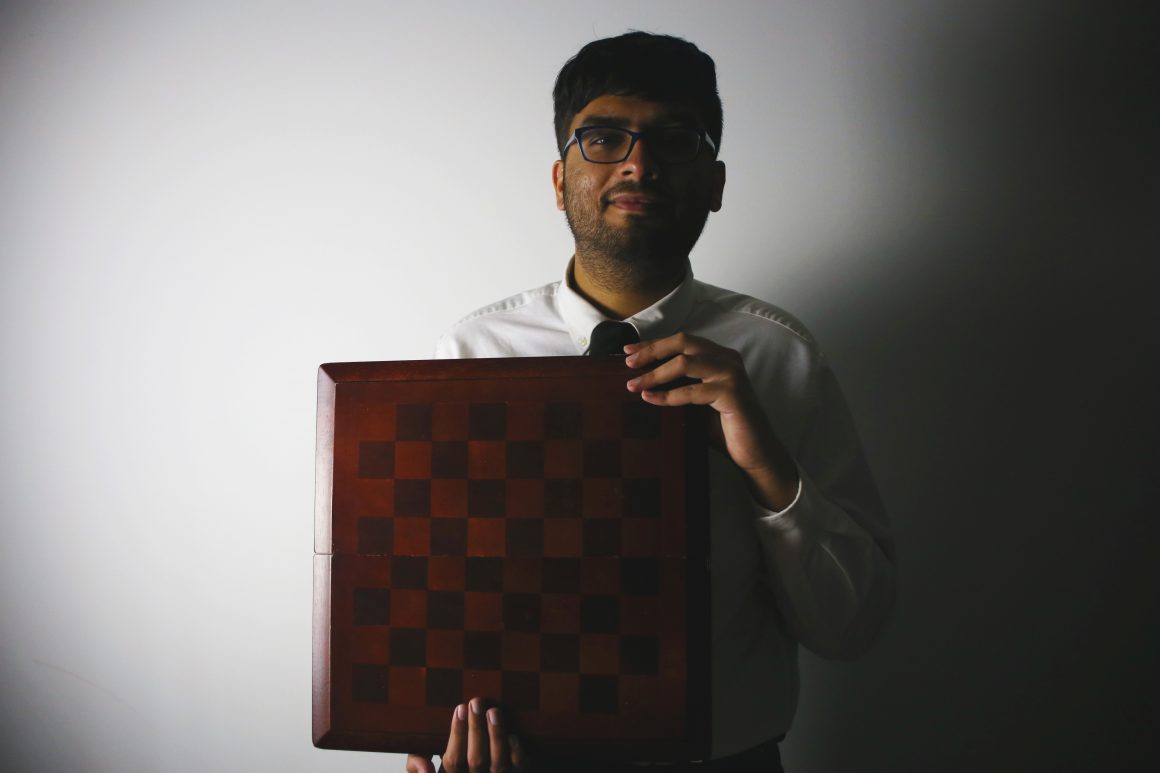
Athlete Tip of the Week: Talha Lodhi
By Nazeefa Ahmed, June 30 2022—
Chess — a game of pure logic and strategy — requires a mind that understands how to balance risk and reward to succeed. Through a calculated sequence of moves and countermoves, a player is continually revising their game plan to increase the odds of success. In the end, only the player with a sixth sense for their opponents moves will enjoy the victory of a checkmate.
Talha Lodhi, the junior executive of the University of Calgary chess club, fits this description perfectly. His focus on key aspects of the game, such as a strategic opening move, and an aggressive hunt for the king sets him apart from amateurs. In an interview with the Gauntlet, Lodhi has shared with us what it takes to master the art of chess.
Lodhi’s favorite opening is pawn to e4, a popular move that lets his opponent know that he will not back down without a fight.
“I personally like playing pawn to e4 because by putting a pawn in the centre, it opens your lines towards your bishop and queen,” he said. “But if my opponent plays pawn to e4 I usually just like to copy them with a pawn to e5. The general idea is not to get captured and try to control the centre [of the board]. It is important to also develop the pieces, meaning that they are better placed when they are moved from where they were in the beginning.”
Lodhi is an unforgiving player, not giving his opponent a single move of grace. However, he described how important it is to assess the board before moving in for a kill.
“At an intermediate level, it is very hard to go for the pieces immediately because your opponent is usually using the same strategies as you,” he said. “If the position calls for more slow play, then I will try to improve the position of my pieces to prevent my opponent from getting what they want. Once I am ready, then I will start making advancements towards the king or attacking any weaknesses they have.”
The game’s objective is to checkmate your opponent while avoiding losing valuable pieces and getting checkmated yourself. Lodhi describes what he does when he finds himself in a tough spot.
“Usually, if my king is about to be checkmated, it means that all of my opponents’ pieces are aiming for my king,” he said. “In this situation, I would try to get my pieces as close to the action as possible to make sure that I have more options for defence. But if multiple pieces are under attack, it means that I am doing something wrong. All pieces should be defended or else one can lose due to the tactics of the opponent.”
Due to the increase in demand for fast chess games worldwide, players not only have to choose an optimal move, but they must do so in a short time. Thinking on the spot is a skill earned through years of practice, and Lodhi described how he plans on improving this aspect of his play.
“To improve my time management, I practice using faster time controls that I am used to,” he said. “Sometimes, I have to remind myself to just move because, yes, it is important to find the best move, but then I would lose the ability to make a move at all.”
Once his match is over, Lodhi takes the time to study his games, looking for weaknesses, missed opportunities, and opponent moves that he can use in the future. Analyzing plays also helps Lodhi notice patterns missed during the games.
“When you are doing a king and queen checkmate for example, watch a knight move until it reaches the corner, move your king in, and then checkmate,” he said. “That can happen only when you have seen that pattern before. Pattern recognition is mainly important tactics and endgame.”
Lodhi recommends that all beginners also know how to checkmate with two rooks, with a queen and a king, and with one rook and a king. He also stressed the importance of practicing fundamental skills by playing a large amount of games.
“One of the things that helped me a lot was playing a lot of games,” he said. “I know it sounds obvious, but when I started, I would spend most of my time just doing chess puzzles but it is so important to play full games and analyze them after.”
Lodhi’s meticulous efforts to improve his play represents the ideal athlete and his story can be used as inspiration for aspiring chess players at the U of C.
